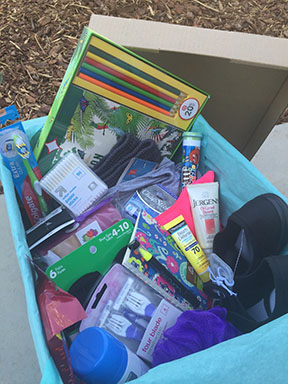Why participate in annual awareness months?
The CARE office participates in annual awareness months in order to raise awareness of issues that affect our campus. If we, as a campus, come together and bring these issues to light, we have a much higher chance of preventing and/or changing the outcomes surrounding them.
-
January: Stalking Awareness Month (SAM) and Human Trafficking Awareness Month
-
February: Teen Dating Violence Awareness Month
-
April: Sexual Assault Awareness Month
-
Take back the Night
-
Take Back The Night is an event centered around solidarity and empowerment for survivors of sexual assault during Sexual Assault Awareness Month (SAAM). Take Back The Night first began in the 1970s due to a rise in violence against women that often occurred during the night.Today, Take Back The Night is used as a stand against all forms of gender-based violence and is used as a safe space for people to show solidarity in their own forms of expression and art. Take Back the Night recognizes and embraces survivors of all gender identities and backgrounds around the world.
-
-
Clothesline Project
-
The Clothesline Project is a visual display of stories that often go ignored. These stories are told through writing on T-Shirts which are then hung on a clothesline and displayed together. Each shirt is made by a survivor of violence, or someone who has lost a loved one to violence. The color of each shirt represents a different type of abuse.
-
The colors of the t-shirts are as follows: White represents someone who has died due to violence; Yellow represents a survivor of physical assault or domestic violence; Red, Pink, and Orange represent a survivor of rape or childhood sexual abuse; Blue and Green represent a survivor of incest or childhood sexual abuse; Purple represents someone who was attacked because of their sexual orientation; Brown or Gray represent a survivor of emotional, spiritual, or verbal abuse; Black represents someone disabled due to an assault or someone who was assaulted because of their disability.The CARE Office has been participating in the Clothesline Project for several years, and is running the event once again in Spring 2023.
-
Over the course of March and April, the CARE Office will be hosting workshops and events where members of the UC Merced community can join and create a shirt, which will then be presented in a visual display in multiple locations across the campus in April.
-
Your Story Matter: Your story matters, and we want to let you tell it on your own terms.
-
This is a campaign that was started in University of callifornia of Merced, to allow bobcats who would like to participate in the Clothesline Project but would like to remain anonymous can do so by filling out this survey: Your Story Matters Anonymous Survey The CARE Office will create t-shirts for the Clothesline Project on behalf of these anonymous voices to ensure that their stories get told with respect to their wishes and will. The t-shirts will then be displayed across various locations on campus throughout the month of April.
-
-
-
Denim Day
-
The Denim Day story begins in Italy in 1992 when an 18-year-old girl was raped by the 45-year-old driving instructor who was taking her to her very first driving lesson. He took her to an isolated road, pulled her out of the car, removed her jeans, and forcefully raped her.
-
She reports the rape and the perpetrator is arrested and prosecuted. He is then convicted of rape and sentenced to jail. Years later, he appealed the conviction claiming that they had consensual sex. The Italian Supreme Court overturned the conviction and the perpetrator was released. A statement from the Court argued that because the victim was wearing very tight jeans, she had to help him remove them, and by removing the jeans it was not rape but consensual sex. This became known throughout Italy as the “jeans alibi.”Enraged by the verdict, the women in the Italian Parliament launched a protest wearing jeans on the steps of the Supreme Court. This protest was picked up by international media which inspired the California Senate and Assembly to do the same on the steps of the Capitol in Sacramento. Patti Occhiuzzo Giggans, Executive Director of Peace Over Violence, saw this in the media and thought everyone should be wearing jeans to protest all of the myths about why women and girls are raped. Denim Day in LA was born. The first Denim Day in LA event was held in April of 1999 and has continued annually since.
-
October: Domestic Violence Awareness Month
October is Domestic Violence Awareness Month (DVAM). It was started by the National Coalition Against Domestic Violence, as a “Day of Unity” in 1981, it then became an entire week-long event. It is now a month-long, nationally recognized event that connects people who work to end violence, celebrate survivors, and mourn those who have been lost to domestic violence. Domestic Violence Awareness Month (DVAM) is filled with CARE events and programs to support these key ideals of DVAM.
Resource Fair
In collaboration with campus and community partners, we host an annual resources tabling at the CatQuad to share information, statistics, and resources about domestic/dating violence and healthy relationships.
UC CARE'S Donation Drive for Valley Crisis Center
Join the CARE office in showing support for survivors of domestic violence by sponsoring a CARE Box. We encourage you to grab a box and fill it with essentials such as new clothes, toiletries, and maybe add in a personal self-care item to really make someone's day! Donations benefit Valley Crisis Center's safe house.


